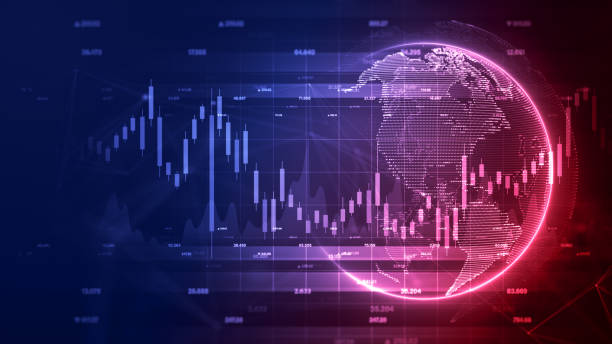Ben Waters, trader, has extensive experience of Delta One trading as well as equity and option trading. As a portfolio manager overseeing his own investments as well as outside capital, Benjamin Waters, trader, takes a keen interest in the latest technological advancements and investment industry trends. This article will look at the ever-increasing role of AI and advanced data analytics in trading and their potential to help investors make smarter trading decisions, boosting the industry overall.
AI offers vast potential to speed up data analysis, eliminating the risk of human bias and error and providing more accurate, actionable insights. As datasets grow, data exploration becomes more difficult and time consuming. Leveraging AI techniques to extract valuable insights from vast troves of information, AI data analysis automates the difficult and time-consuming task of searching for patterns in large datasets.
Data analytics is a process that involves analysing raw data to extract valuable insights and information. Machine learning algorithms identify patterns and provide predictions based on large datasets, while deep learning utilises neural networks for things like time-series analysis, image recognition and more. Meanwhile, natural language processing (NLP) derives insights from unstructured text. Many data analysis techniques and processes have been automated over the course of the last decade or so, leveraging algorithms and other mechanical processes that work over raw data for human consumption. Today, data analytics is utilised by various different entities, including traders, to optimise their performance and maximise profits. This is achieved by using software and other tools to gather and analyse raw data.
In stock trading, artificial intelligence is increasingly being used to study vast tracts of market data and make predictions about trends. Applying data analytics and machine learning, advanced AI technologies are identifying patterns and making investment decisions faster and more accurately than human traders ever could. Utilising neural networks and sophisticated algorithms, AI stock trading applications incorporate predictive models that are continuously trained on new data. These models adapt over time, becoming more and more accurate as they learn from market shifts and changing information.
AI trading systems analyse the historical performance of stock, seeking out patterns and adjusting real-time trading strategies in line with market fluctuations. By consistently adapting to real-time conditions, AI trading systems pave the way for more responsive and effective trading decisions. From highly efficient AI trading apps to fully automated systems, these solutions are transforming the financial world by presenting faster and more competent trading decisions.
According to data from Grand View Research, the worldwide algorithmic trading market was valued at $15.55 billion in 2021. Grand View Research’s research suggests a staggering 12.2% CAGR for the sector from 2022 to 2030. In order to stay ahead of the competition, stock trading businesses are increasingly leveraging the power of AI and advanced analytics, enabling them to process vast amounts of information no human mind could process in a lifetime, thereby producing faster, more accurate predictions and ultimately more profitable outcomes.
In the world of stock market trading, AI and data analytics have spawned a new era of smart analysis, picking up correlations in market behaviours and making actionable decisions at lightning speed. Advanced AI algorithms can today predict the optimum moment to buy or sell, taking human emotion out of trading decisions and enabling traders to close opportunities within milliseconds.
AI systems not only make choices but execute trades immediately, buying and selling in a fraction of the time it takes their human contemporaries. AI systems capture market movements as they happen. In addition, one of the key advantages of AI lies in its continuous learning and optimisation capabilities, facilitating continual improvement and refinement based on past results to enhance decision-making and outcomes over time.




